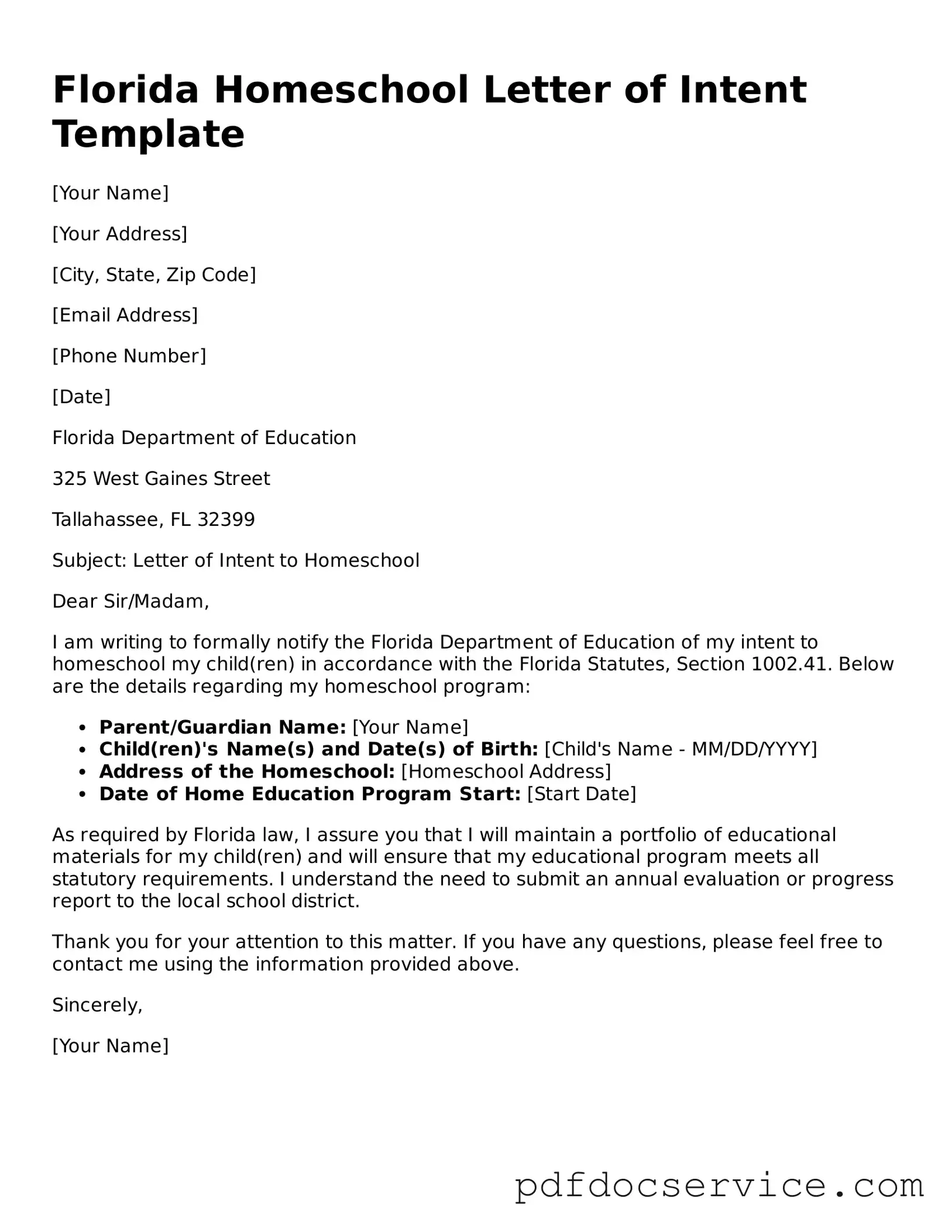Printable Homeschool Letter of Intent Template for Florida
The Florida Homeschool Letter of Intent form is a document that parents must submit to officially notify the local school district of their decision to homeschool their child. This form serves as the starting point for homeschooling in Florida, ensuring compliance with state regulations. Understanding how to properly complete and submit this form is crucial for a smooth homeschooling experience.
Open Homeschool Letter of Intent Editor

Printable Homeschool Letter of Intent Template for Florida
Open Homeschool Letter of Intent Editor

Open Homeschool Letter of Intent Editor
or
Get Homeschool Letter of Intent PDF
Finish the form now and be done
Finish Homeschool Letter of Intent online using simple edit, save, and download steps.